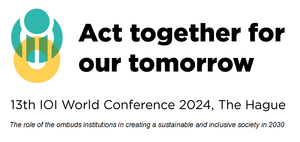Ombudsman Peter Tyndall has today published a report following his investigation into the HSE’s administration of the Treatment Abroad Scheme. The investigation followed complaints to the Ombudsman about the scheme including suggestions that it was overly complex, that there were delays in approving applications and that some applicants were being given incorrect information.
The Treatment Abroad Scheme (TAS) provides funding to allow Irish public patients access healthcare in other EU countries, the European Economic Area or Switzerland that is not available here.
The Ombudsman acknowledges that the vast majority of applications for the scheme are dealt with appropriately by the HSE. However, his investigation discovered some shortcomings in the scheme which can have a serious impact on patients.
Speaking today, Ombudsman Peter Tyndall said: “Some people have had difficulties with their applications under the scheme. These are people who are waiting for treatment or surgery so the impact on them can be particularly severe. I am glad to say that the HSE has co-operated with my investigation and has fully accepted my recommendations which are aimed at improving the operation of the scheme.”
The Ombudsman’s report describes a number of complaints he received from patients who had their applications turned down by the HSE. In one case a woman who sought treatment in Germany was told that she was not eligible for TAS as the treatment was available in Ireland. This was despite having received funding for two previous trips abroad for the same treatment. When she complained to the Ombudsman his Office discovered that the treatment was not available in Ireland.
In his report, which is available on his website, the Ombudsman makes a number of recommendations:
- To reduce the possibility of a refusal for patients at the end of the application process, consultants should carry out a ‘pre-referral’ check to ensure that the application meets the criteria set out in the scheme.
- To assist consultants with a ‘pre-referral’ check, the HSE should develop a comprehensive guide to the criteria for TAS.
- The HSE should improve its appeals system for refused applicants. The appeal system should be independent of the original decision maker and have the necessary medical expertise to arbitrate on clinical and non-clinical issues.
- The HSE should clearly explain the reasons applications are refused by issuing a formal decision to applicants which includes information on how to appeal the decision and complain to the Ombudsman if not satisfied.
Source: Office of the Ombudsman

